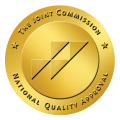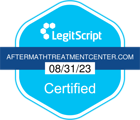Intensive Outpatient Program

Intensive Outpatient Program
What is An Intensive Outpatient Program (IOP)?
Seen as a transitional phase, often following a Partial Hospitalization Program (PHP), an IOP serves as a “step-down” in care intensity. It provides gradual recovery, moving from a PHP to an IOP and a standard outpatient program.
IOPs cater to those who can’t commit to long-term inpatient programs for personal or financial reasons. At Aftermath, we understand the challenges of balancing treatment with a busy life.
But who is an IOP for? It’s tailored for those who, for various reasons, can’t commit to long-term inpatient programs. Life’s demands, personal, professional, or financial, can be overwhelming. At Aftermath, we’ve designed our IOP with an understanding of these challenges, making sure you can choose recovery.
Our Approach to IOP Treatment
Recovery isn’t a one-size-fits-all journey. It’s personal, unique, and ever-changing. Our IOP at Aftermath Addiction Treatment Center recognizes this, offering support, guidance, and a safety net as you find a new normal.
Our program is more than a series of sessions; it’s a community and a safe place. The Aftermath IOP provides a structured and flexible environment so that you can get the support you need.
At Aftermath, we aim to set you on a path to long-term recovery. We use clever strategies to ensure the best treatment outcomes. Our relaxed, supportive, and intensive program keeps you committed. With your collaboration, your therapist, and our clinical team, success is within reach.
And for those who prefer the comfort of their homes, we’ve integrated technology into our approach. Offering a virtual version of our IOP, we make sure that distance or circumstances don’t stand in the way of recovery.
Who Should Consider IOP Rehab?
Intensive Outpatient Programs are perfect for individuals who need structure but have responsibilities. An IOP is suitable for:
Post-Partial Hospitalization (PHP) Individuals:
Those who have completed a PHP and are looking for a step-down level of care.
Early-stage Addicts:
Individuals in early addiction who need a more structured environment.
Those with Busy Schedules:
Professionals, students, or caregivers who can’t take long breaks but want to commit to recovery.
Financial Limitations:
Intensive outpatient for alcohol treatment
Aftermath’s IOP for alcohol treatment addresses the unique challenges of alcohol addiction. Through evidence-based therapies, clients learn to manage cravings and understand their triggers. They can also develop good coping mechanisms.
Our program focuses on relapse prevention and provides clients with the tools they need to maintain sobriety in the long term. It’s not just about getting sober; it’s about staying sober.
The Effectiveness of IOP Drug Rehab
Here’s why our program stands out:
- Structured Flexibility: The program offers the flexibility to fit into your daily life.
- Evidence-based Therapies: Our therapies are backed by research, making sure you get the best care possible.
- Peer Support: Group therapies encourage a sense of community, ensuring you’re not alone in your journey.
- Holistic Approach: We address the physical and psychological aspects of addiction for complete care.
- Expert Guidance: Our team has industry experts, therapists, and counselors with a lot of experience.
Comparing IOP and PHP: Understanding The Differences
IOPs and PHPs both offer structured treatment, but their intensity and approach vary.
Here’s a breakdown of the key differences:
- Duration and Intensity: PHPs are more intensive, often requiring up to 25 hours a week, making them suitable for more severe addictions. IOPs, on the other hand, range from 9 to 15 hours, offering a balance between care and daily life.
- Flexibility: IOPs are for those with work, family, or social commitments that need structured care. PHPs, being more intensive, might require a larger time commitment.
- Transition: PHPs are often a starting point in the recovery journey, with patients transitioning to IOPs as they progress.
The Advantages of IOP Rehab
Choosing an IOP comes with many benefits:
- Tailored Flexibility: Programs can range from 9 to 15 hours weekly, ensuring they fit your schedule.
- Work-Life Balance: You don’t have to choose between recovery and life. Our program ensures you can manage both.
- Structured Duration: Spanning 12 to 16 weeks, our program offers a clear roadmap to recovery.
- Resource Access: From support groups to aftercare planning, we ensure you have all the necessary tools for staying sober.
What To Consider Before Choosing IOP Rehab
Selecting the right treatment option is important. Before diving into an IOP, consider:
- Severity of Addiction: Ensure your addiction level matches the care intensity an IOP offers.
- Medical Needs: Assess if you need medical supervision or detoxification. Inpatient options may be better in this case.
- Support at Home: A stable, drug-free living environment can improve the effectiveness of an IOP.
- Previous Treatments: An IOP might be better if you’ve tried outpatient treatments, which haven’t worked.
- Mental Health: Co-occurring mental health disorders might need special care. IOPs address both addiction and mental health.
- Finances: Ensure you understand the costs involved and any insurance coverage you might have.
Taking A Closer Look At IOP Treatment
IOP treatment offers a comprehensive approach to addiction recovery, balancing intensity with flexibility.
How Long Does IOP Treatment Last?
IOP treatment offers a comprehensive approach to addiction recovery, balancing intensity with flexibility.
How Much Does IOP Treatment Cost?
The cost of IOP treatment can vary based on the program’s duration and specifics. Insurance providers often cover some expenses, but you must consult with your provider to understand any costs you may need to cover.
Specialized IOP Services for Substance Abuse
At Aftermath, we recognize that substance addiction is complicated. Our IOPs are tailored to address various substance addictions. We make sure individuals receive care specific to their needs and addiction type.
Cocaine Treatment in IOPs
Cocaine, a powerful stimulant, can lead to intense addiction, especially in its freebase form, crack cocaine. Withdrawal can cause strong cravings and intense lows. Our IOP helps individuals with coping strategies and a support system for early recovery from cocaine addiction.
IOP for Meth Addiction
Methamphetamine, or meth, has a powerful psychological hold on users. Post-detox, many experience depression, and intense cravings. Our IOP addresses these challenges, helping individuals manage cravings and associated psychiatric symptoms.
Benzo Addiction in IOPs
Benzodiazepine addiction can lead to severe complications, especially when combined with other substances. Our program helps individuals break their dependence and address the anxiety of withdrawal.
Treating Heroin Addiction in an IOP
The opioid crisis has affected countless lives, with heroin addiction affecting people from all walks of life. Withdrawal can be very uncomfortable, leading many to start using it again. Our program offers tools to manage cravings and ensure sustained recovery from heroin addiction.
Fentanyl Addiction Treatment in IOPs
Fentanyl, a synthetic opioid, is potent and addictive. Overdoses are common, making treatment important. Our IOP offers specialized care for fentanyl addiction. We help you manage the intense cravings and ensure a safe, structured path to recovery.
Navigating Behavioral Health in Our IOP
At Aftermath, we understand that substance addiction often comes with behavioral health issues. Our IOP addresses the physical aspects of addiction and the underlying behavioral patterns. We ensure a holistic approach to recovery.

What is An Intensive Outpatient Program (IOP)?
Seen as a transitional phase, often following a Partial Hospitalization Program (PHP), an IOP serves as a “step-down” in care intensity. It provides gradual recovery, moving from a PHP to an IOP and a standard outpatient program.
IOPs cater to those who can’t commit to long-term inpatient programs for personal or financial reasons. At Aftermath, we understand the challenges of balancing treatment with a busy life.
But who is an IOP for? It’s tailored for those who, for various reasons, can’t commit to long-term inpatient programs. Life’s demands, personal, professional, or financial, can be overwhelming. At Aftermath, we’ve designed our IOP with an understanding of these challenges, making sure you can choose recovery.
Our Personalized IOP Mental Health Services
Every individual’s journey with addiction is unique. At Aftermath, we focus on personalized care. Our IOP mental health services cater to individual needs, ensuring the best recovery outcomes.
IOP for Co-occurring Disorders
Co-occurring disorders are where an individual has a substance addiction and a mental health disorder. Our IOP addresses both, ensuring individuals receive treatment for their unique challenges.
Unlocking Your Potential With CBT
Cognitive Behavioral Therapy (CBT) is helpful in the addiction treatment process. It helps individuals find and correct negative thought patterns. CBT is useful for both substance use disorders and other mental health challenges.
Enhancing Well-Being Through Dialectical Behavior Therapy (DBT)
DBT, a branch of CBT, focuses on acceptance and change. It’s helpful for addiction and co-occurring mental health disorders. It assists individuals in managing emotions and helps to reduce conflict in relationships.
Comprehensive IOP for Depression
Depression can both result from and lead to substance abuse. Our IOP offers a comprehensive approach to treating depression. It ensures that individuals receive the care they need to address their mental health and addiction.
A Guide To Our Comprehensive IOP Treatment
Understanding what’s involved in an IOP is crucial whether you’re considering treatment for yourself or a loved one. We provide insights into our comprehensive IOP treatment, answering common questions and concerns.
Also included in Our IOP
Recovery has many aspects, and our IOP covers them all. From group therapy sessions to individual sessions, our program deals with every aspect of recovery.
The Advantages of IOP Rehab
Recovery has many aspects, and our IOP covers them all. From group therapy sessions to individual sessions, our program deals with every aspect of recovery.
Group Therapy Sessions
Humans are social beings, and recovery is no different. Group therapy offers a place for shared experiences, mutual support, and collective growth, which is vital in recovery.
Individual Therapy
Personal challenges need personal solutions. Our individual therapy sessions ensure that care addresses unique challenges, traumas, and experiences.
Family Counseling Sessions
Addiction affects not just the individual but the entire family. Our family counseling sessions aim to heal relationships. We help with understanding, support, and collective growth.
12-Step Modalities
The 12-step approach is highly effective in addiction recovery. It offers structure and spirituality for sobriety. Highlighted in the 12 steps are personal responsibility and mutual support.
Resources For Those in Recovery
Recovery doesn’t end with the program. We offer many resources, from EMDR for trauma to meditation for stress management. This ensures individuals have the tools for sustained sobriety.
EMDR
Eye Movement Desensitization and Reprocessing (EMDR) is a groundbreaking psychotherapy technique. It’s especially effective for individuals who’ve experienced trauma. Traumatic experiences often go hand in hand with addiction and can create barriers to recovery. EMDR helps process these traumas, allowing individuals to move forward without the weight of the past.
Meditation
Meditation, an ancient practice, has found its place in modern recovery. Promoting mindfulness, self-awareness, and stress reduction, meditation offers tools to navigate challenges. At Aftermath, we offer meditation sessions, giving individuals useful tools for recovery.
Interpersonal Skills & Family Relation Groups
Healthy relationships form the foundation of sustained recovery. Our sessions focus on improving interpersonal skills, communication, and conflict resolution. By encouraging healthy family dynamics, individuals have a supportive environment to return to. This increases the chances of sustained sobriety.
Medication Management
For some, medication can be an important part of the recovery journey. We offer medication management to ensure safe and effective use that aligns with the individual’s recovery goals.
Reach out to us for IOP Rehab in Massachusetts
Recovery is a journey, and every journey needs a guide. At Aftermath, we pride ourselves on giving good direction. If you’re ready to get sober, we’re here to help. With a combination of expertise, compassion, and dedication, we ensure that the path to recovery is straightforward.
At Aftermath Addiction Treatment Center in Wakefield, MA, we’re dedicated to transforming lives. Our IOP is especially for those seeking effective treatment without full-time inpatient commitment.
Begin your recovery journey today. Call us at 855-795-1226 for more information.
FAQs About Intensive Outpatient Treatment
At Aftermath, we recognize that substance addiction is complicated. Our IOPs are tailored to address various substance addictions. We make sure individuals receive care specific to their needs and addiction type.
What does IOP stand for?
IOP stands for Intensive Outpatient Program, a structured but flexible program for drug and alcohol addiction.
How long is IOP treatment?
IOP treatment at Aftermath typically lasts 12 to 16 weeks, with sessions ranging from 9 to 15 hours weekly.
How much does an IOP cost?
The cost of IOP varies based on duration and specifics. It’s best to consult with the treatment center and your insurance provider for detailed pricing.




